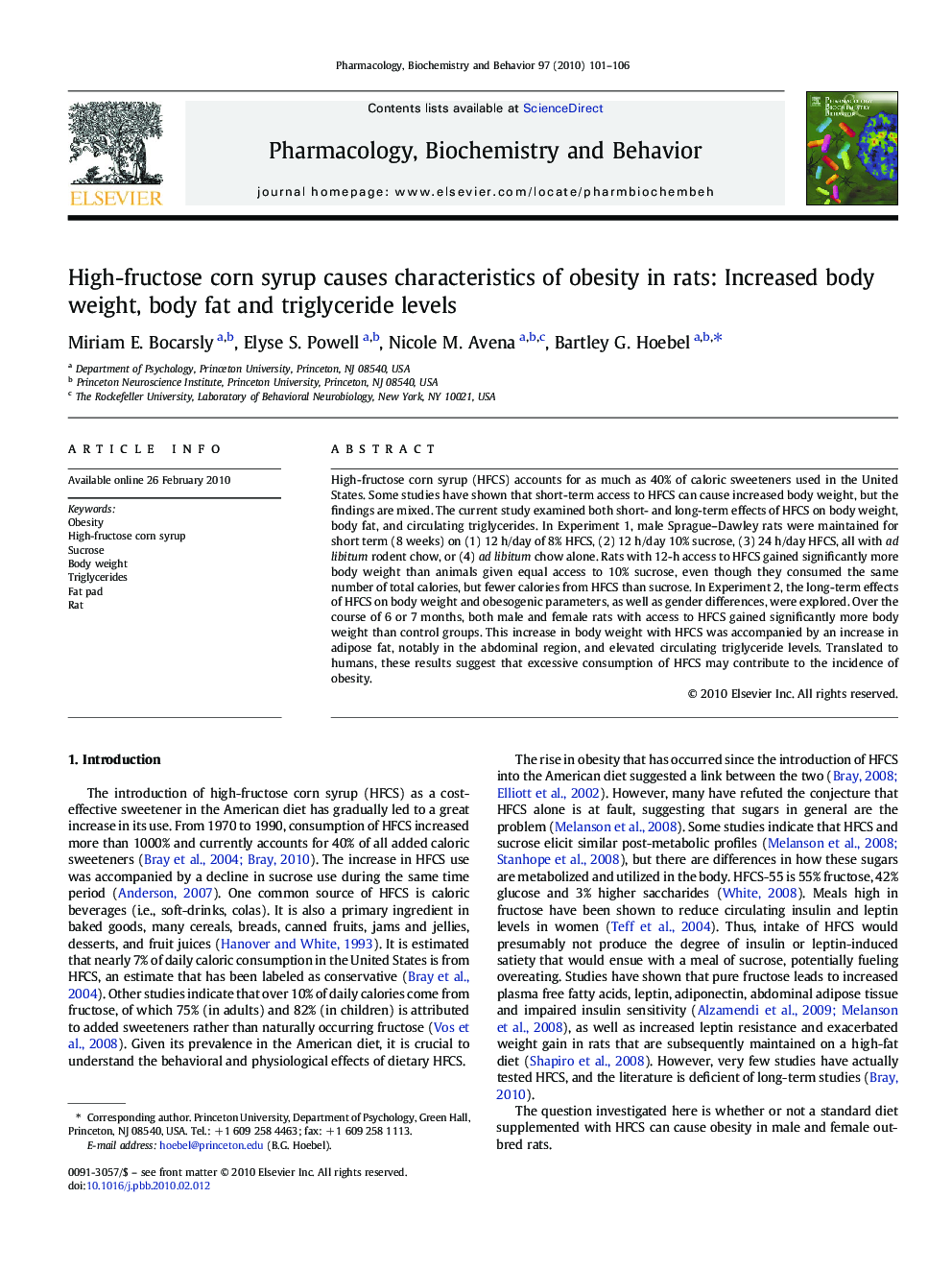| Article ID | Journal | Published Year | Pages | File Type |
|---|---|---|---|---|
| 2013251 | Pharmacology Biochemistry and Behavior | 2010 | 6 Pages |
High-fructose corn syrup (HFCS) accounts for as much as 40% of caloric sweeteners used in the United States. Some studies have shown that short-term access to HFCS can cause increased body weight, but the findings are mixed. The current study examined both short- and long-term effects of HFCS on body weight, body fat, and circulating triglycerides. In Experiment 1, male Sprague–Dawley rats were maintained for short term (8 weeks) on (1) 12 h/day of 8% HFCS, (2) 12 h/day 10% sucrose, (3) 24 h/day HFCS, all with ad libitum rodent chow, or (4) ad libitum chow alone. Rats with 12-h access to HFCS gained significantly more body weight than animals given equal access to 10% sucrose, even though they consumed the same number of total calories, but fewer calories from HFCS than sucrose. In Experiment 2, the long-term effects of HFCS on body weight and obesogenic parameters, as well as gender differences, were explored. Over the course of 6 or 7 months, both male and female rats with access to HFCS gained significantly more body weight than control groups. This increase in body weight with HFCS was accompanied by an increase in adipose fat, notably in the abdominal region, and elevated circulating triglyceride levels. Translated to humans, these results suggest that excessive consumption of HFCS may contribute to the incidence of obesity.
